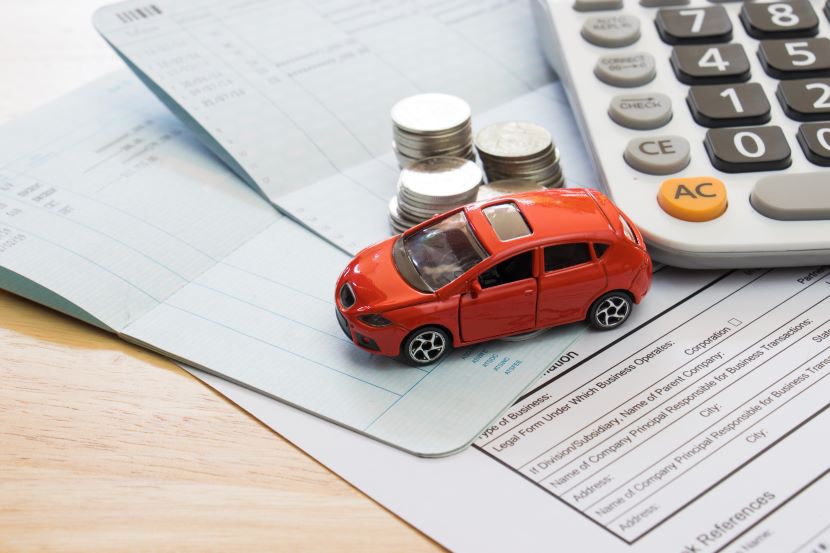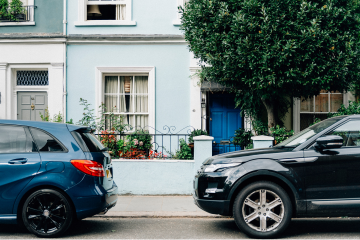When your car insurance policy is up to renewal, your main 2 options are to stay with your current insurer or switch insurers. Most insurers auto renew your car insurance policy so you’re not driving without cover.
But you can often make savings by comparing quotes - so don't fall into the trap of auto renewal. Here's what you need to know about your car insurance renewal and how to save money by switching.

Does my car insurance renew automatically?
Yes - most insurers auto-renew your policy. But you can opt out. You're not under any obligation to renew your policy with your existing insurer.
Simply put, unless you tell your car insurance provider otherwise, your policy should auto renew every year.
This comes down to rules around Continuous Insurance Enforcement, which make sure that all motor vehicles have valid insurance at all times.
What do I do if I don’t want my car insurance to renew automatically?
You can call your insurer to opt out of auto renewal, to be on the safe side it's worth asking for proof of the amend. If you opt out of auto renewal, your policy then 'lapses' or stops once your current one ends.
If you plan on switching insurers, do it sooner rather than later. If you let your current policy auto renew and then decide to switch, you might have to cancel your car insurance policy and pay a cancellation fee.
Or you might risk driving without insurance if your policy lapses before you've bought a new car insurance policy.
When is the best time to renew my car insurance?
The best time to think about renewing or switching your car insurance is around 3 weeks before your policy expires*. According to our data, that's when prices tend to be the cheapest, so you can make the biggest saving if you switch around then.
By default, most car insurance policies last 12 months, so you can set yourself a reminder. Some car insurance companies also offer accelerated policies that last 10 months rather than 12.
When will my insurer send my renewal quote?
Typically, your insurer should send you a renewal notice between 21 and 30 days before your policy ends. This gives you enough time to compare car insurance quotes and get a better deal.
If you’re not sure when your renewal date is, you can call your insurer or check your insurance documentation.
You should get a letter or email with your new insurance policy price and what you paid last year.
You don’t have to accept their auto renewal offer. When you know your renewal price, you can shop around to find a better deal. If you’ve found a better quote, make sure you tell your previous insurer so they don't renew the old policy.
Why is my car insurance renewal price more expensive?
There could be several reasons why your car insurance has gone up. These factors can affect how car insurance is calculated:
- Increasing your mileage
- If you've been in an accident in the past year
- If you’ve moved to a new house
- If you’ve changed where you park your car overnight
If your renewal price is high due to any of these reasons, it’s worth shopping around.
Car insurance costs are beginning to fall. In fact, the average cost of car insurance in the UK is now £164 (17%) cheaper compared to March 2024**. Despite this, car insurance is calculated on an individual basis, so you're not guaranteed to save money - especially if any of the above reasons are true.
Will I save money by staying with the same insurer?
Probably not. There's no real benefit to being loyal to a specific insurer, so don't fall into the auto renewal trap. You could save yourself some money by switching to a different insurer that offers the same level of cover. And you can transfer your no-claims bonus, too.
"In January 2022, the Financial Conduct Authority (FCA) welcomed new regulations to ensure insurers can’t charge existing customers higher insurance costs than new customers. This should help with transparency, but I still urge you to compare car insurance quotes.
"Even if your renewal isn't as much as you thought - or even less than last year - you could still save by switching."What our motor insurance expert says

I've changed my mind – can I cancel my car insurance policy?
Yes, you can cancel your car insurance policy at any time. You usually have 14 days after you start the policy to cancel, this is know as a 'cooling-off period'. But you still may have to pay a small fee to cover the cost of the time you had cover.
How do I lower the cost of my car insurance?
Everyone likes to save money! So it’s worth knowing some tips for cheaper car insurance. These include:
Shopping around and comparing prices
Try shopping around before committing to a new policy. That way you can ensure you're getting the best deal. Even if your renewal quote is competitive, it's worth finding out what other insurers can offer you.
Paying annually
Insurance providers tend to charge interest for spreading costs over a monthly basis, this isn't the case when paying annually. So, paying for your insurance in one lump sum rather than monthly can actually work out as a cheaper option - if you can afford to do so!
Improving your car’s security
Adding security devices to your car can work in your favour when it comes to car insurance premiums. Additional security measures can help deter the risk of car theft, keeping your car safe.
Increasing your voluntary excess
Voluntary excess is what you contribute towards a claim. You can adjust this, unlike compulsory excess. Increasing your voluntary excess can bring down the cost of your car insurance policy. But you need to make sure you can afford this in the event of a claim.
Building up your No claims bonus (NCB)
You can build your NCB for each year you go without making a claim. Over time this can help lower your car insurance premiums. You could pay to protect your NCB. This means you can make a set amount of claims without losing your NCB.
Compare car insurance quotes
*Confused.com data Q4 2024.
**Confused.com car insurance price index. February 2025.








